lunes, 23 de marzo de 2015
jueves, 19 de marzo de 2015
Review of the film: ROBIN HOOD
A feudal lord entitled to allegiance and service, were those who has general authority over others.

ROBIN HOOD: was the one who toke money from the rich people to give the money to the poor.
With King Richard the Lionhearted away fighting wars in the Holy Land, his brother Prince John seizes the Regency. The Normans are hard on the Saxon peasants, and when Prince John learns that Richard is being held for ransom in Vienna, he taxes them beyond all reasonable limits supposedly to pay for his release. Sir Robin of Locksley, a Saxon lord, rebels against the Prince and his principal henchman, Sir Guy of Gisbourne. Declared an outlaw, he takes up residence in Sherwood Forest and begins to surround himself with those who are loyal to King Richard: Little John, Friar Tuck, Will Scarlet and all the rest. When the Prince and Gisbourne manage to capture him by staging a archery contest, it's the beautiful Maid Marion who arranges his escape. When Robin and his men learn that Richard is in England, they protect him and ensure his evil brother is removed from power.
Review of the film : THE WAR LORD
The war Lord
INTRODUCTION OF THE FILM :
In the 11th century Europe the violent land divided in small domains stretching from the mediterranean until the North Sea . Powerful Nobles Lords of the war they exercised the right of life and death over his subjets .
The Duke William dominated a costal area Normandia and protect weatlands . The duke command a troop guided by his most loyal knight Normando de la Cruz
SUMMARY OF THE FILM :
Chysagon convert in a feudal Lord of that strange lands . When they arrive they have to fight with the Friesians and in the battle her Alconero take prisioner to the soon of the leader of the Friesians .
He falls in love with a peasant her name was Bronwyn . Bronwyn marries with another peasant and Chrysagon ask the right to spend the wedding night with her . When the sunrise he don´t returned Bronwyn because the two are in love .
The husband to avenage bhe allied with the fresios that try to recover the soon of the leader they are some battles and finally Chrysagon whant to give the soon of the leader but her brother don´t whant because he whant to avenge the death of his father and he fight with her brother , Chrysagon kills her brother and give the boy to his father in appreciation the leader says to he that go whit he and he offers wealth and lands but he don´t whant because is a knight and he have to solucionate first his honor with the Duke , but he whant that Bronwyn goes with his and take care of her while he solucionate his things .
The farmer hears and he whants to revenge and strikle with a sickle to the knight and the peasant dies . Bronwyn goes with the Friesians and he says it would meet and be srtuck dead to save his honor before the Duke .
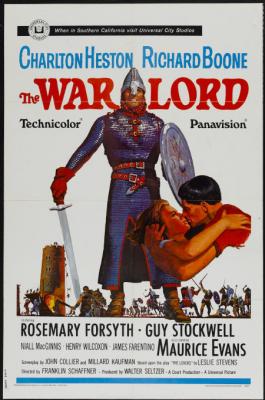
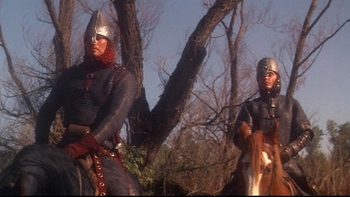

INTRODUCTION OF THE FILM :
In the 11th century Europe the violent land divided in small domains stretching from the mediterranean until the North Sea . Powerful Nobles Lords of the war they exercised the right of life and death over his subjets .
The Duke William dominated a costal area Normandia and protect weatlands . The duke command a troop guided by his most loyal knight Normando de la Cruz
SUMMARY OF THE FILM :
Chysagon convert in a feudal Lord of that strange lands . When they arrive they have to fight with the Friesians and in the battle her Alconero take prisioner to the soon of the leader of the Friesians .
He falls in love with a peasant her name was Bronwyn . Bronwyn marries with another peasant and Chrysagon ask the right to spend the wedding night with her . When the sunrise he don´t returned Bronwyn because the two are in love .
The husband to avenage bhe allied with the fresios that try to recover the soon of the leader they are some battles and finally Chrysagon whant to give the soon of the leader but her brother don´t whant because he whant to avenge the death of his father and he fight with her brother , Chrysagon kills her brother and give the boy to his father in appreciation the leader says to he that go whit he and he offers wealth and lands but he don´t whant because is a knight and he have to solucionate first his honor with the Duke , but he whant that Bronwyn goes with his and take care of her while he solucionate his things .
The farmer hears and he whants to revenge and strikle with a sickle to the knight and the peasant dies . Bronwyn goes with the Friesians and he says it would meet and be srtuck dead to save his honor before the Duke .



How they lived?
Lords lived in castles. During the Middle Ages, the landscape of Europe was full by them.Lords lived priviledged lives compared with peasant's lives who worked their land.
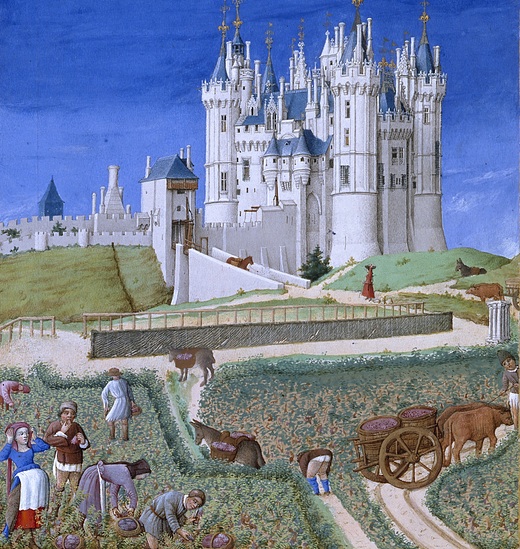
The castle was the centre of the local power, as it was the law court and a government office, The local prison used to be in the castle, too.


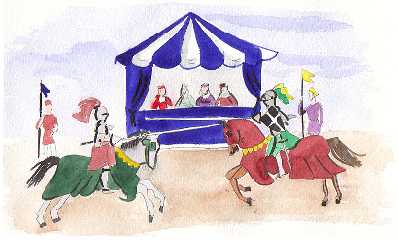

The castle was the centre of the local power, as it was the law court and a government office, The local prison used to be in the castle, too.
In their castles, the lords and the ladies led privileged lives: they used to wear colourful clothes made from luxurious fabrics such as silver or velvet. They used to eat white bread made from refined flour and also meat. Besides, they used to drink wine instead of beer.

Young girls were married between the ages of 14 and 16 and these marriages were arranged between families.

Noblemen, entertained themselves by hunting and hawking, activities that gave castle kitchens with fresh meat. Medieval ladies also learnt to ride and sometimes they joined in hunting expeditions.

miércoles, 18 de marzo de 2015
What was their work?
Middle Ages Feudalism was based on the exchange of land for military service.
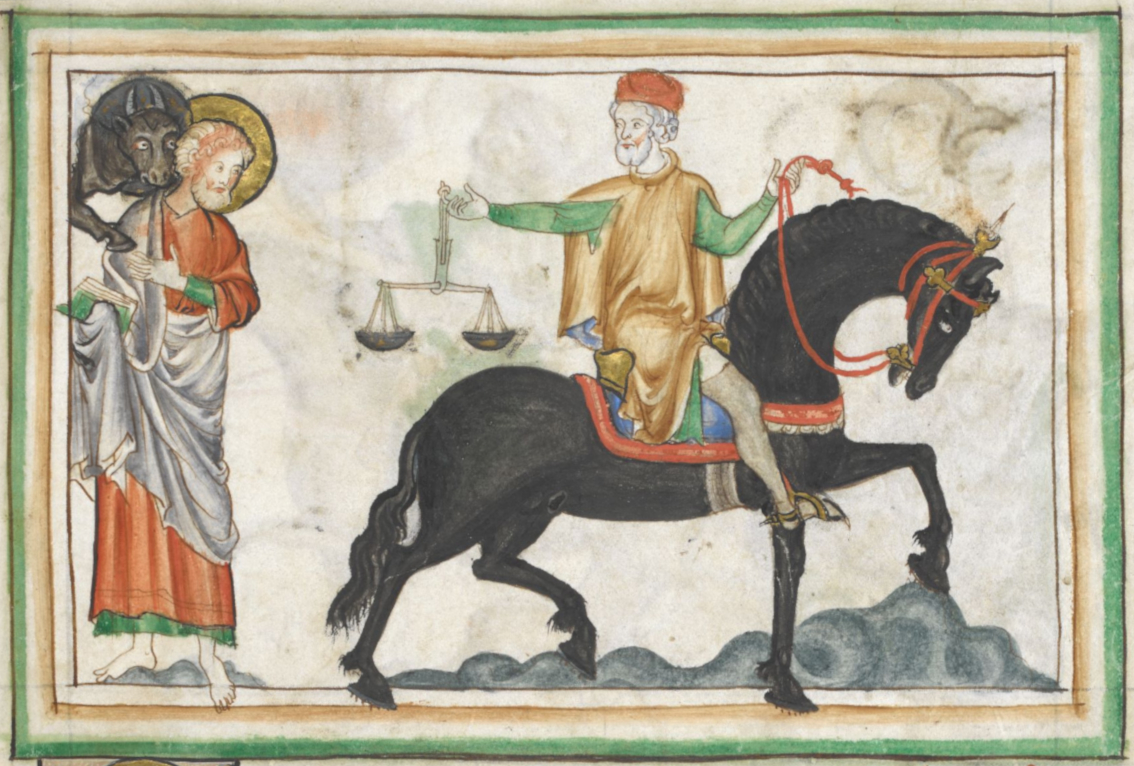
Daily life of Nobles and Lords during the Middle ages centred around their castles or Manors or fighting for the King during times of war. The daily life of nobles can be described as the following:
1.Lords and nobles had to attend business topics in relation to his land. Reports would be heard regarding estate crops, harvests and supplies. Finances - rents, taxes, customs and dues. The lord would also be expected to exercise his judicial powers over his vassals and peasants


2. There were complaints and disputes such as tenants to be settled, permission to marry etc .

3.The daily life of the nobles included political discussions and decisions.

4.As the Medieval period progressed the culture changed becoming more elegant. Time was spent on the arts poetry, music etc.

5.In the afternoon the daily life of nobles turned to hunting, hawking or inspecting the estate.
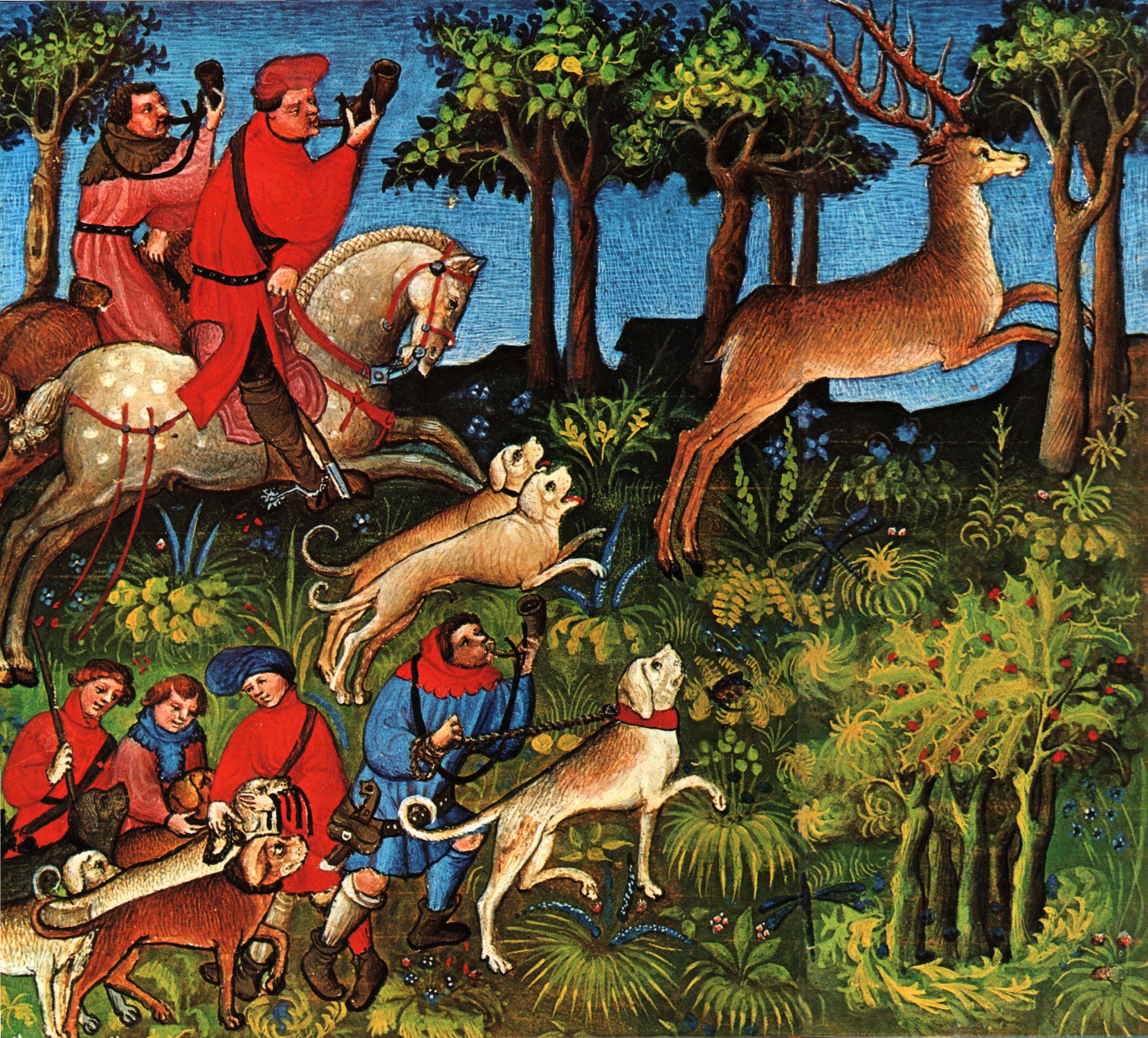
6.After supper there might be some entertainment - music, dancing, jugglers, acrobats, jesters, etc.


Daily life of Nobles and Lords during the Middle ages centred around their castles or Manors or fighting for the King during times of war. The daily life of nobles can be described as the following:
1.Lords and nobles had to attend business topics in relation to his land. Reports would be heard regarding estate crops, harvests and supplies. Finances - rents, taxes, customs and dues. The lord would also be expected to exercise his judicial powers over his vassals and peasants


2. There were complaints and disputes such as tenants to be settled, permission to marry etc .

3.The daily life of the nobles included political discussions and decisions.

4.As the Medieval period progressed the culture changed becoming more elegant. Time was spent on the arts poetry, music etc.

5.In the afternoon the daily life of nobles turned to hunting, hawking or inspecting the estate.

6.After supper there might be some entertainment - music, dancing, jugglers, acrobats, jesters, etc.

martes, 17 de marzo de 2015
Who were they?
Feudal lords were the ones who controlled the land on which cities were built. The vassal was independent of the lord. He swore loyalty to the lord, help and advice. The lord had to protect his vassal give him the resources he need to survive , it was usally a fief , which was land.
A noble could be a vassal of the king , and in the same time he could also be the lord of a lower social rank.
Religious people could also be feudal lords , because the received fiefs.
During the 1100, certain men had castles and courts that rivaled the king's; there could be serious threats if they were not happy in their dealings with the crown.
A noble could be a vassal of the king , and in the same time he could also be the lord of a lower social rank.
Religious people could also be feudal lords , because the received fiefs.
During the 1100, certain men had castles and courts that rivaled the king's; there could be serious threats if they were not happy in their dealings with the crown.
In 1215, the English barons formed an union that obligated King John to sign the Magna Carta. While it gave no rights to ordinary people, the Magna Carta did limit the king's powers of tax and require trials before punishment. It was the first time that an English monarch came under the control of the law.
Suscribirse a:
Entradas (Atom)






